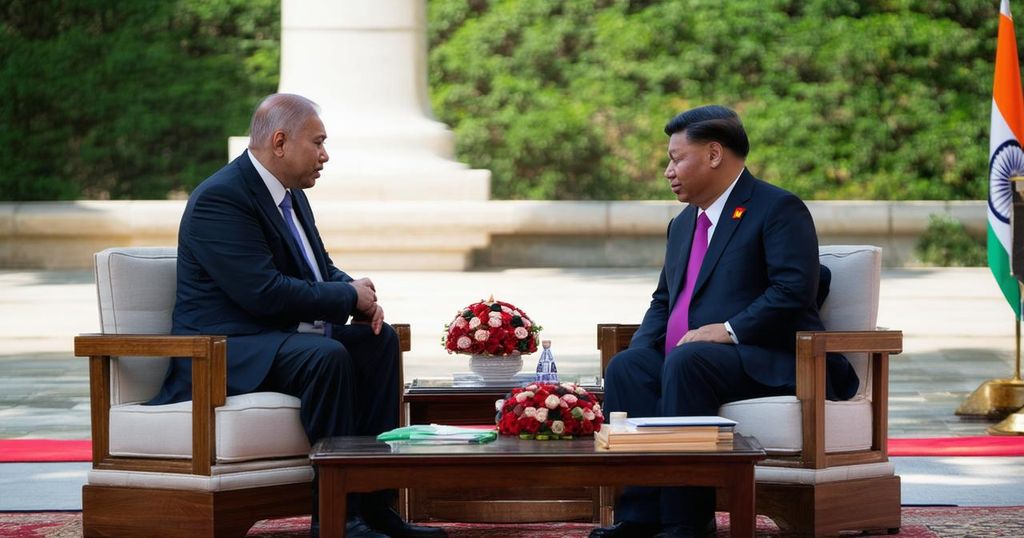Indian Prime Minister Narendra Modi and Chinese President Xi Jinping met at the BRICS summit in Russia, representing a pivotal moment in India-China relations that had been strained due to territorial disputes. After a history of military confrontations, both leaders agreed to resume dialogue and work towards resolving ongoing issues, highlighting the importance of maintaining peace on their shared border.
In a significant diplomatic encounter, Indian Prime Minister Narendra Modi and Chinese President Xi Jinping met on the sidelines of the BRICS summit held in Russia, marking the first formal meeting since their countries experienced a deadly clash along a disputed Himalayan border four years prior. Following prior agreements on disengagement and resolution of border issues, both leaders expressed optimism regarding the resumption of dialogue between India and China. This thaw in relations can be traced back to decades of strained ties primarily caused by a poorly defined border stretching approximately 3,440 kilometers (2,100 miles). The territorial disputes have historically led to military confrontations, such as the 1962 war, where India faced a considerable defeat. Tensions reignited with the violent skirmish in the Galwan Valley in 2020, prompting both nations to de-escalate afterwards, albeit the underlying friction persisted. In the lead-up to this recent meeting, both nations had taken incremental steps towards resolving their disputes, including military disengagements and ministerial conversations. Notably, bilateral relations were impacted as India imposed restrictions on Chinese investments and discontinued certain travel links following the multiple clashes. During their latest meeting, Modi and Xi committed to advancing dialogue, stipulating that their respective special representatives would convene to seek fair and mutually acceptable resolutions regarding the border issue. As articulated by Prime Minister Modi, maintaining peace and stability on the border was pivotal for bilateral relations and global peace. This meeting underscores an evolving foreign policy landscape within which both nations are navigating their complex relationship amidst international scrutiny.
The relationship between India and China has a tumultuous history rooted in territorial disputes over the Himalayas. Dating back to the Sino-Indian War of 1962, which resulted in a significant setback for India, both nations have faced multiple confrontations along their shared border. Growing tensions were particularly exacerbated by events like the revocation of Article 370 concerning Kashmir autonomy by India in 2019 and the deadly Galwan Valley clash in 2020, leading to a military standoff that affected not only diplomatic ties but also economic interactions. In recent years, efforts have been made to stabilize relations with dialogues emerging amid international gatherings, signaling a cautious but potential thaw stemming from mutual interests in regional stability and economic collaboration.
The meeting between Prime Minister Modi and President Xi signifies a notable step towards mending the frayed ties between India and China following years of tension and conflict. With both leaders emphasizing the need for ongoing dialogue and resolution over border disputes, the commitment to peace and stability establishes a foundation for future relations. The forthcoming meetings between their respective representatives will be crucial in determining the trajectory of bilateral ties, with a keen focus on fostering mutual trust and cooperation.
Original Source: www.bbc.com






